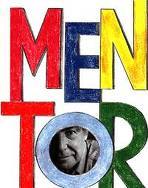The 21st Century Retooling of the Church – Part XXIII
 It has been almost ½ a century since the grass root Charismatic movement or Jesus movement was birthed, touching tens of thousands of Christian believers. Its influence still felt today. It has made the Church look at how it worships, influencing it music, introducing spiritual gifts back to the church, challenging many of its traditions. Allowing the Holy Spirit to flow freely in the midst of tradition and order has brought tension, for any renewal movement in church history has met opposition, usually from within.
It has been almost ½ a century since the grass root Charismatic movement or Jesus movement was birthed, touching tens of thousands of Christian believers. Its influence still felt today. It has made the Church look at how it worships, influencing it music, introducing spiritual gifts back to the church, challenging many of its traditions. Allowing the Holy Spirit to flow freely in the midst of tradition and order has brought tension, for any renewal movement in church history has met opposition, usually from within.
Today, many of these influences have been “tempered”, “absorbed” through the “osmosis” of control, and presented as a belief of the church but with little evidence of its use. It has now been several decades since I have been in a joint, nondenominational meeting where there was evidence of speaking in tongues with interpretation, prophetic utterances, the entire congregation singing in the spirit, the laying on of hands for healing and the Spirit’s empowerment, and the manifestation of deliverance from demonic influences. Because of the church’s demand to control these types of events, it seems as if all is quiet on the Western front today. Control has “tempered” this movement that challenged the religious establishments of its time.
In the 1990’s the “prophetic” movement and later the “apostolic” movement left its impact, but the church categorized them, as they did all five fold ministries, as “offices” as Senior Pastors and self proclaimed prophets now boasted of their banner of being an apostle. Only clergy boasted of those titles, but the church would not recognize the prophetic or apostolic as a passion, desire, motivation, point of view or gifting that was touching the grass root believer of the Church.
Because of some of the misuses and misunderstanding during these movement, the 21st Century Church has produced a spirit of skepticism over the five fold, seeking control to insolate itself from any more damage. Yet in the midst of any renewal or revival movement comes newness, self insightfulness, re-examination, and change. With any movement of renewal, revival, or reformation comes the question of “trust”. Can we “trust” what this new movement is advocating?
I believe the foundations to the five fold has been laid through the 20th century as the Church was forced to grope with the truths presented and released in the various movements of renewal and reform throughout that century. Unfortunately, the church, as an organization, has tried to bring the influence of these movements into the protective covering of its influence, often damping them into submission.
I believe the church needs to take a “new” look, a “renewed” look, a “reformational” look at the five fold. If it allows it to be a “grass root” movement among all of its believers, and embraces it as passions and point of views of its individual believers for the unity of the common good, we may see a new resurgence of the five fold in the 21st Century. Any time the power, influence, and control of the professional religious clergy is challenged by the newness and freedom of the common believer, tensions will increase; history records that clash.
 Of course, this blog advocates the freedom of individual believers to be released to flow in their evangelical, pastoral, teaching, prophetic, or apostolic passion or point of view to be used in an interdisciplinary setting, relying on each other’s gifting, passion, and point of view that are is different from their own in an effort to bring unity and resurrected power back into the Body of Christ to make the Church effective in the 21st Century. Continue to join me in my journey as the Holy Spirit continues to reveal the truth, power, and passion of the five fold when released into his care. Can we trust the Holy Spirit is still the bottom line question the church and every believer in Jesus Christ must ask.
Of course, this blog advocates the freedom of individual believers to be released to flow in their evangelical, pastoral, teaching, prophetic, or apostolic passion or point of view to be used in an interdisciplinary setting, relying on each other’s gifting, passion, and point of view that are is different from their own in an effort to bring unity and resurrected power back into the Body of Christ to make the Church effective in the 21st Century. Continue to join me in my journey as the Holy Spirit continues to reveal the truth, power, and passion of the five fold when released into his care. Can we trust the Holy Spirit is still the bottom line question the church and every believer in Jesus Christ must ask.



















































